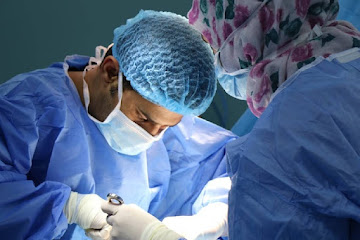Coronary artery disease (CAD) affects millions of people worldwide and is a leading cause of heart-related complications and death. While lifestyle modifications and medications can help manage CAD, there are cases where bypass surgery becomes necessary.
A leading heart doctor in Delhi, Dr. Sujay Shad explains that coronary artery bypass grafting (CABG), commonly known as bypass surgery, is a surgical procedure that reroutes blood flow around blocked or narrowed arteries, restoring blood supply to the heart. He further elaborates on the need for getting a well-qualified surgeon to perform this kind of surgery.
In this blog, we will explore the circumstances in which a person may require bypass surgery.
When Does A Patient Need Bypass Surgery?
- Severe Coronary Artery Disease
The primary indication for bypass surgery is the presence of severe coronary artery disease. When the coronary arteries, which supply oxygen-rich blood to the heart muscle, become narrowed or blocked due to the buildup of plaque, it can lead to chest pain (angina), shortness of breath, and other symptoms. If lifestyle changes, medications, and less invasive procedures, such as angioplasty and stenting, are not effective in alleviating symptoms or improving blood flow, bypass surgery may be recommended.
- Multiple Blocked Arteries
Bypass surgery is particularly beneficial when multiple coronary arteries are blocked or narrowed. If three or more major arteries supplying the heart are severely obstructed, bypass surgery is often the preferred treatment. By creating new pathways for blood flow using grafts, such as veins from the leg or arteries from the chest, the surgeon can bypass the blockages and improve blood supply to the heart muscle.
- Left Main Coronary Artery Disease
The left main coronary artery is a critical artery that forms a large portion of the heart muscle. If it becomes significantly narrowed or blocked, bypass surgery may be necessary. The left main artery disease requires prompt attention, as it poses a higher risk of life-threatening events, such as heart attack or cardiac arrest. Bypass surgery can effectively restore blood flow to this vital artery and reduce the risk of complications.
- Failure of Non-Surgical Treatments
Before considering bypass surgery, heart surgeons usually exhaust non-surgical treatment options, such as medications and lifestyle modifications. If these interventions fail to control symptoms, improve blood flow, or prevent further progression of coronary artery disease, surgery may be the next logical step. Bypass surgery can offer long-term relief and reduce the need for frequent hospital visits or invasive procedures.
- Failed Angioplasty or Stenting
Angioplasty and stenting are minimally invasive procedures commonly used to treat coronary artery disease. During angioplasty, a balloon-tipped catheter is used to widen the narrowed artery, and a stent (a tiny mesh tube) is placed to keep the artery open. However, in some cases, these interventions may not achieve the desired results. If the artery re-narrows or if complications arise following angioplasty or stenting, bypass surgery may be required to restore blood flow effectively.
Heart Surgery Cost?
Those who want to know the heart surgery cost in Delhi must understand that many factors affect its costs such as:
- The severity of the condition.
- Location of the facility.
- Doctor’s qualification.
- Doctor’s experience.
- Doctor’s expertise, etc.
Importance of a Bypass Surgery
Bypass surgery is a vital and highly effective treatment option for individuals with severe coronary artery disease. It becomes necessary when non-surgical treatments and less invasive procedures fail to provide relief or improve blood flow adequately. By creating alternative pathways for blood circulation, bypass surgery restores oxygen-rich blood supply to the heart, reducing symptoms and lowering the risk of life-threatening complications.
If you or a loved one experiences severe chest pain, shortness of breath, or other symptoms associated with coronary artery disease, it is crucial to seek medical attention promptly. A qualified heart doctor can assess your condition, perform diagnostic tests, and determine the most appropriate treatment plan, which may include bypass surgery if necessary.
Remember, each case is unique, and decisions regarding bypass surgery are made on an individual basis after considering various factors. Trust your heart surgeon and his team to guide you through the process and help you make informed decisions to safeguard your heart health. If you are looking for the top heart surgeon in Delhi, visit Dr. Sujay Shad at Sir Ganga Ram Hospital, now!







